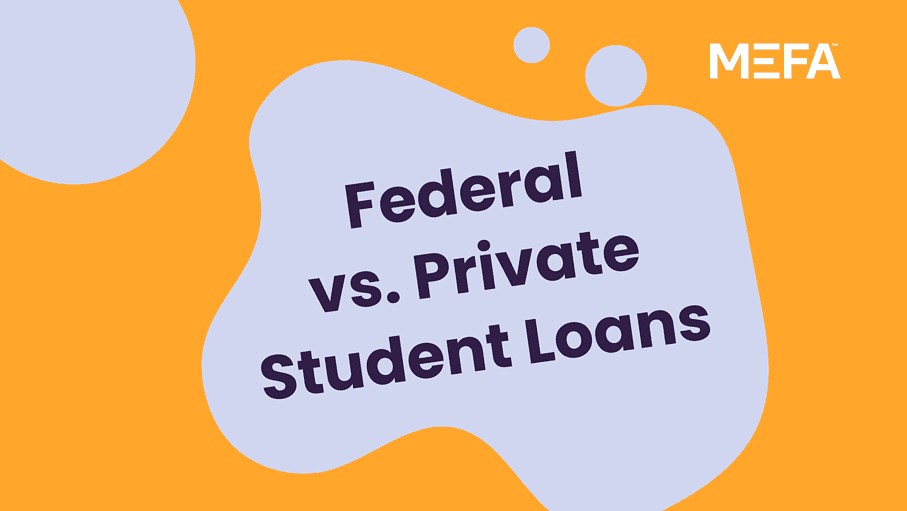Learn the difference between these two types of student loans. Federal student loans are given by the federal government and are available to any student who files the FAFSA. They have the same interest rate for every student and offer various income-based repayment plans. Private loans come from banks, credit unions, and state-based lenders. They require a credit check, offer an interest rate based on credit score, and have stricter repayment terms. For more information, read our blog post, Private Student Loans vs. Federal Student Loans: What’s the Difference?
Please note that this transcript was auto-generated. We apologize for any minor errors in spelling or grammar.
Now another question that I know many of you have is, what is the difference between a federal loan and a private loan? So here’s the difference. Federal student loans are given by the federal government. They do not require a credit check to be approved. And to get them, you basically just need to file the FAFSA.
Now, every student who gets a federal student loan for the same year gets the same interest rate. You don’t have to start repaying these loans while you’re in college. And when you do start repaying them, well, then there are a lot of opportunities for income-based repayment plans. to keep your payments as low as possible and forgiveness options.
Private loans come from non-government lenders. So that’s banks, that’s credit unions, that’s state-based lenders like MEFA. Private loans do require a credit check to be approved, so most often students need a co-applicant. The repayment on those may be deferred until after you’re out of college. Or they may start while you’re in college.
And not everybody who is approved for these loans gets the same interest rate. So interest rate is typically determined by the applicant’s credit score. And also, there are much stricter regulations regarding repayment, so those options that exist on federal student loans for things like income-based repayment and forgiveness options don’t exist really with private loans.
There is another loan that you may have heard of called a PLUS. It stands for Parent Loan for Undergraduate Student, and it has characteristics of private loans, though it is technically a federal loan. Parents must be credit approved for these loans. These loans don’t carry many of the same income-based repayment options or forgiveness options that the Federal Direct Student Loans do, though everybody who is approved for it does get the same interest rate and you can choose to defer the repayment until after the student is out of school with no change to the interest rate.
This is a parent-only loan, so the parent is the only person responsible for this particular loan, and so if you want to have a loan on your student’s credit report in order to strengthen their credit history, uh, this loan will not help you to do that.















